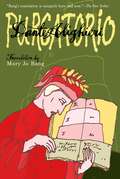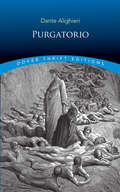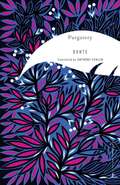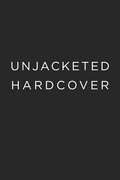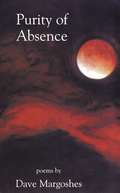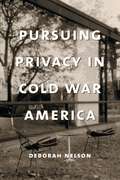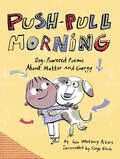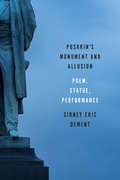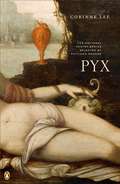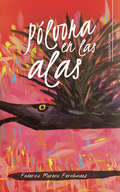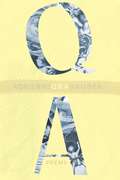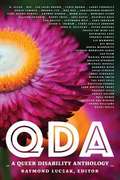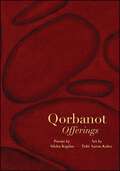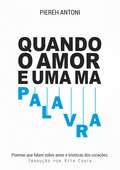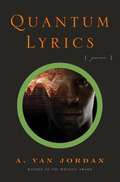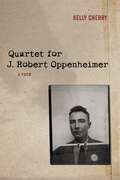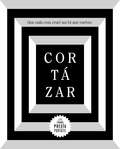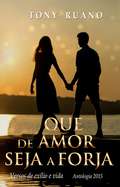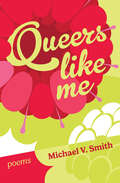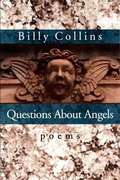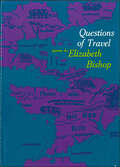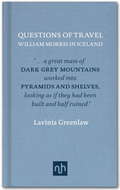- Table View
- List View
Purgatorio
by Dante AlighieriThe second installment in Mary Jo Bang’s exhilarating, innovative translation of Dante’s The Divine ComedyAward-winning poet Mary Jo Bang’s new translation of Purgatorio is the extraordinary continuation of her journey with Dante, which began with her transformative version of Inferno. In Purgatorio, still guided by the Roman poet Virgil, Dante emerges from the horrors of Hell to begin the climb up Mount Purgatory, a seven-terrace mountain with each level devoted to those atoning for one of the seven deadly sins. At the summit, we find the Terrestrial Heaven and Beatrice—who will take over for Virgil, who, as a pagan, can only take Dante so far. During the climb, we are introduced to the myriad ways in which humans destroy the social fabric through pride, envy, and vindictive anger.In her signature lyric style, accompanied by her wise and exuberant notes, Bang has produced a stunning translation of this fourteenth-century text, rich with references that span time, languages, and cultures. The contemporary allusions echo the audacious character of the original, and slyly insist that whatever was true in Dante’s era is still true. Usain Bolt, Tootsie Fruit Chews, the MGM logo, Leo the Lion, Amy Winehouse, Marvin Gaye, Bob Dylan, and Gertrude Stein are among those who make cameo appearances as Bang, with eloquence and daring, shepherds The Divine Comedy into the twenty-first century.
Purgatorio (Dover Thrift Editions: Poetry Ser.)
by Dante Alighieri Henry Wadsworth LongfellowThe second book in the three-part Divine Comedy finds Dante and his guide, Virgil, halfway between Heaven and Hell. Having portrayed the tortures of the damned in Inferno, Dante resumes his allegory of the soul's journey to God with Purgatorio. A place of pain but also hope, Purgatory allows its suffering souls to reflect upon their sins and to work toward their moral improvement, paving the way for their eventual entry to Paradiso.Dante transformed the traditional notion of Purgatory by depicting how aspiring souls could undergo moral change, exchanging their human frailty for divine perfection. His exploration of theological issues, especially the role of free will, offers an eloquent and inspiring parable of human possibility and redemption. This edition features the renowned translation by American poet Henry Wadsworth Longfellow and serves as a companion volume to the Dover editions of Inferno and Paradiso.
Purgatory
by Dante Alighieri Anthony EsolenIn this new translation of Dante's most brilliant, imaginative creation, Purgatory, Dante struggles up the terraces of Mount Purgatory, still guided by Virgil, in continuation of his difficult ascent to purity. The book includes an appendix of key sources and extensive endnotes.
Purgatory (Bilingual English/Spanish Edition)
by Raul Zurita Anna DeenyZurita's Purgatory, a landmark in contemporary Latin American poetry, records the physical, cultural, and spiritual violence perpetrated against the Chilean people under Pinochet's military dictatorship (1973-1990) in the fiercely inventive voice of a postmodern master.
Purity of Absence
by Dave MargoshesIn Purity of Absence, Dave Margoshes explores love in its waxing and waning, the extravagance of its fullness, the agony of its departure. Like an explorer charting new territory, he casts his eye on the rhythms and syntax of love, observing its aspects both quotidian and rare. The poems in this new collection, Margoshes’s first in a decade, chart the ekg patterns of love, not just the mature love between a man and a woman but love for a parent, friends, knowledge, place and, ultimately, life itself.
Pursuing Privacy in Cold War America (Gender and Culture Series)
by Deborah NelsonPursuing Privacy in Cold War America explores the relationship between confessional poetry and constitutional privacy doctrine, both of which emerged at the end of the 1950s. While the public declarations of the Supreme Court and the private declamations of the lyric poet may seem unrelated, both express the upheavals in American notions of privacy that marked the Cold War era. Nelson situates the poetry and legal decisions as part of a far wider anxiety about privacy that erupted across the social, cultural, and political spectrum during this period. She explores the panic over the "death of privacy" aroused by broad changes in postwar culture: the growth of suburbia, the advent of television, the popularity of psychoanalysis, the arrival of computer databases, and the spectacles of confession associated with McCarthyism.Examining this interchange between poetry and law at its most intense moments of reflection in the 1960s, '70s, and '80s, Deborah Nelson produces a rhetorical analysis of a privacy concept integral to postwar America's self-definition and to bedrock contradictions in Cold War ideology. Nelson argues that the desire to stabilize privacy in a constitutional right and the movement toward confession in postwar American poetry were not simply manifestations of the anxiety about privacy. Supreme Court justices and confessional poets such as Anne Sexton, Robert Lowell, W. D. Snodgrass, and Sylvia Plath were redefining the nature of privacy itself. Close reading of the poetry alongside the Supreme Court's shifting definitions of privacy in landmark decisions reveals a broader and deeper cultural metaphor at work.
Pursuing Privacy in Cold War America (Gender and Culture Series)
by Deborah NelsonPursuing Privacy in Cold War America explores the relationship between confessional poetry and constitutional privacy doctrine, both of which emerged at the end of the 1950s. While the public declarations of the Supreme Court and the private declamations of the lyric poet may seem unrelated, both express the upheavals in American notions of privacy that marked the Cold War era. Nelson situates the poetry and legal decisions as part of a far wider anxiety about privacy that erupted across the social, cultural, and political spectrum during this period. She explores the panic over the "death of privacy" aroused by broad changes in postwar culture: the growth of suburbia, the advent of television, the popularity of psychoanalysis, the arrival of computer databases, and the spectacles of confession associated with McCarthyism.Examining this interchange between poetry and law at its most intense moments of reflection in the 1960s, '70s, and '80s, Deborah Nelson produces a rhetorical analysis of a privacy concept integral to postwar America's self-definition and to bedrock contradictions in Cold War ideology. Nelson argues that the desire to stabilize privacy in a constitutional right and the movement toward confession in postwar American poetry were not simply manifestations of the anxiety about privacy. Supreme Court justices and confessional poets such as Anne Sexton, Robert Lowell, W. D. Snodgrass, and Sylvia Plath were redefining the nature of privacy itself. Close reading of the poetry alongside the Supreme Court's shifting definitions of privacy in landmark decisions reveals a broader and deeper cultural metaphor at work.
Push-Pull Morning: Dog-Powered Poems About Matter and Energy
by Lisa Westberg PetersIntroduce children to physics through play, poetry, and a puppy in this joyous celebration of how physics matters in our everyday lives.This remarkable picture book explores scientific concepts (gravity, magnetism, electricity, friction, etc.) through the story of the relationship between a child and a puppy. Acclaimed author Lisa Westberg Peters&’s poems convey concepts in a way that children will remember—often with humor. Who could forget the various phases when they&’re presented in the form of a dog—solid when eating dinner, liquid when pouring herself into her basket, and gas when leaping erratically after a fly? Serge Bloch&’s whimsical illustrations extend the humor—and the love—in this tale of a child, a dog, and the energy that abounds in their world.Extensive notes at the end of the book define and explain the physics subjects included in the poems.
Pushkin’s Monument and Allusion: Poem, Statue, Performance
by Sidney Eric DementIn August of 1836 Alexander Pushkin wrote a poem now popularly known simply as "Monument." He died a few months later in January of 1837. In the decades following his death, the poem "Monument" was transformed into a statue in central Moscow: the Pushkin Monument. At its dedication in 1880, the interaction between the verbal text and the visual monument established a creative dynamic that subsequent generations of artists and thinkers amplified through the use of allusion, the aesthetic device by which writers reference select elements of cultural history to enrich the meaning of their new creation and invite their reader into the shared experience of a tradition. The history of the Pushkin Monument reveals how allusive practice becomes more complex over time. By the twentieth century, both writers and readers negotiated increasingly complex allusions not only to Pushkin’s poem, but to its statuesque form in Moscow and the many performances that took place around it. As the population of newly literate Russians grew throughout the twentieth century, images of the future poet and the naive reader became crucial signifiers of the most meaningful allusions to the Pushkin Monument. Because of this, the story of Pushkin’s Monument is also the story of cultural memory and the aesthetic problems that accompany a cultural history that grows ever longer as it moves into the future.
Pyx
by Corinne LeeWhen Pattiann Rogers selected this book for the 2004 National Poetry Series, she praised its "original and engaging music," the way Corinne Lee "skillfully interweaves wit, playfulness, and a joie de vivre with serious study and meditations." <P><P>PYX takes its title from the box containing the host, a wafer that is transformed into spirit upon consumption. And Lee’s poems effect similar transformations. Death, adultery, and fractured marriages become occasions for redemption. Scenes from domestic life are juxtaposed with themes from art, philosophy, and literature. PYX moves effortlessly between high and low culture, between the mundane, sacred, and profane, exploring the possibilities of language with exhilarating vigor.
Pólvora en las alas
by Federico Moreno Fernández«Tanto invento del corazón, tanto descubrimiento en su herrumbre...»Federico Moreno Con Pólvora en las alas, Federico Moreno mantiene una honda mirada hacia el ser humano y a su quebradiza naturaleza, a sus equívocos, a las cloacas a las que conducen sus barros. Las biografías sin homenaje de la gente oculta, la fugacidad del amor y la orfandad ante el abismo que nos presenta la vida son las tres partes que estructuran este intenso libro, construyendo un personaly estilizado espacio lingüístico donde se alojan, con algo de luz, familiares desencuentros.
Q & A
by Adrienne GruberAdrienne Gruber's third full poetry collection, Q & A, is a poetic memoir detailing a first pregnancy, birth and early postpartum period. The poet is both traumatized and transformed by the birth of her daughter. She is compelled by the dark places birth takes her and as she examines and revisits those places, a grotesque history of the treatment of pregnant and birthing women reveals itself.
QDA: A Queer Disability Anthology
by Raymond LuczakQDA: A Queer Disability Anthology features fiction, poetry, nonfiction, and comics by 48 writers from around the world.
Qorbanot: Offerings (SUNY series in Contemporary Jewish Literature and Culture)
by Alisha KaplanA dynamic dialogue of poetry and art that reimagines the ancient, biblical concept of sacrifice.Winner of the 2022 Gerald Lampert Memorial Award presented by the League of Canadian Poets A collaboration between poet Alisha Kaplan and artist Tobi Aaron Kahn, Qorbanot-the Hebrew word for "sacrificial offerings"-explores the concept of sacrifice, offering a new vision of an ancient practice. A dynamic dialogue of text and image, the book is a poetic and visual exegesis on Leviticus, a visceral and psychological exploration of ritual offerings, and a conversation about how notions of sacrifice continue to resonate in the twenty-first century.Both from Holocaust survivor families, Kaplan and Kahn deal extensively with the Holocaust in their work. Here, the modes of poetry and art express the complexity of belief, the reverberations of trauma, and the significance of ritual. In the poems, the speaker, offspring of burnt offerings, searches for meaning in her grandparents' experiences and in the long tradition of Orthodox Judaism in which she was raised. Kahn's paintings on handmade paper, drawn from decades of his career as an artist, have not previously been exhibited or published. They reflect his quest to distill a legacy of trauma and loss into enduring memory.With a foreword by James E. Young and essays by Ezra Cappell, Lori Hope Lefkovitz, and Sasha Pimentel, the book presents new directions for thinking about what sacrifice means in religious, social, and personal contexts, and harkens back to foundational traditions, challenging them in reimagined and artistic ways.
Quando o Amor é uma má palavra
by Piereh Antoni Rita Isabel Ribeiro da Costa> - Rita Costa << "Quando o amor é uma má palavra" é uma antologia poética que reune setenta e cinco expressões de sentimento escritas por mim desde o ínicio do ano de 2008. Em "Quando o Amor é uma má palavra" personifiquei diversas situações, reais ou imaginárias. Minha única intenção é que o leitor seja transportado para um mundo de muitas histórias, no qual terá toda a liberdade para interpretá-las. As palavras incluídas em cada uma desta "folhas" não pretendem discriminar. Estão ordenadas da mesma forma que o amor, com picos e abismos, quando começa, quando se cruza com a desilusão e dor, quando termina com o desejo de renascer e tentar uma vez mais. Então, o melhor é deixar que elas mesmas se apresentem com a sua histórias.>> - Piereh Antoni
Quantum Lyrics: Poems
by A. Van JordanThis provocative, ambitious collection explores the intersection of the infinite world of physics with the perplexities of the human condition. Employing both narrative and cinematic structure, A. Van Jordan re-creates the lives of his subjects: Albert Einstein, Richard Feynman, comic-book superheroes (The Green Lantern, The Atom), along with aspects of himself revealed in poems of recollection and loss. With lyric intensity he suggests that contemporary physicists are also metaphysical poets.
Quartet for J. Robert Oppenheimer: A Poem
by Kelly Cherry“Robert Oppenheimer was a complex human being. No biography yet written comes even close to this elegant skein of poems in capturing his life and character.”—Richard Rhodes, author of the Pulitzer Prize–winning The Making of the Atomic Bomb Quartet for J. Robert Oppenheimer records in poetry the life and times of one of America’s best-known scientists, the father of the atomic bomb who later lobbied for containment of nuclear weaponry. In brief, elegant stanzas, Kelly Cherry examines Oppenheimer’s inspirations, dreams, and values, visiting the events, places, and people that inspired him or led him to despair. She finds his place among scientists of his own time, such as Alan Turing and Albert Einstein, as well as his connections with historical and mythological figures from John Donne to Persephone. “Of course he had blood on his hands. Who did not?” says Cherry, in “The Nature of War.” Again and again in the course of this remarkable poem, Cherry’s narration of Oppenheimer’s life compels her readers to contemplate the vagaries of science, guilt, and our responsibilities to each other. “Quartet for J. Robert Oppenheimer is a book length poem in which the architect of the atom bomb comes to embody America and the West’s Faustian control of nature and the paradoxical helplessness and guilt which that control entailed. Oppenheim is marvelous, complicated, flawed and admirable character, and these poems read like chapters in a novel without in any way abandoning the intensities of feeling and image or delight in language we associate with lyric poetry. A terrific achievement and a compelling read.”—Alan Shapiro, author of Life Pig and Reel to Reel
Que cada cosa cruel sea tú que vuelves (Flash Poesía #Volumen)
by Julio Cortázar<P>Que cada cosa cruel sea tú que vuelves, de la colección «Poesía portátil» constituye una ventana a la poesía de uno de los escritores argentinos más relevantes del siglo XX. <P>La obra de Julio Cortázar es uno de los pilares de la literatura de habla hispana del siglo XX. <P>Conocido especialmente por sus cuentos y novelas, el autor argentino era un poeta hasta cuando escribía en prosa y supo imprimir en sus versos la misma emoción que conmocionó en obras como Rayuela. ------- <P><P> «No me des tregua, no me perdones nunca.Hostígame en la sangre, que cada cosa cruel sea tú que vuelves. ¡No me dejes dormir, no me des paz!Entonces ganaré mi reino,naceré lentamente.No me pierdas como una música fácil, no seas caricia ni guante;tállame como un sílex, desespérame.» -------
Que de amor seja a forja
by Tony RuanoVersos de amor, exílio e vida Este livro de poemas de Tony Ruano, "Que de amor seja a forja", busca a vida em seu tom maior, como um passo a mais na recordação dos anos passados. Purifica seu próprio credo ante os seres e as coisas que amou, e com isso eleva-se em sua transparência de ser. -oOo- «Por uma especial coincidência, em um momento em que a transição do tempo vai do dia para a noite, o rosto amado suplanta a luz, e há como um instante ascendente do espírito, uma ascensão da alma (…). Consolo ou cautela na adversidade ou na amargura, pode o amor ser fogueira ou forja que funda, em consoladora amálgama, consolo e dor: “Para tempos de pranto / que de amor seja a forja”». Ángel Cuadra (sobre os poemas de Tony Ruano)
Queen Esther's Garden
by Vera Basch MoreenThis anthology represents a variety of writings produced by the Jewish community of Iran between the eighth and nineteenth centuries. Most of the translations were prepared specifically for this anthology from unpublished manuscripts. Extensive notes accompany each selection to clarify its meaning in jewish and islamic history and legend.
Queen of the Ebony Isles
by Colleen J. McelroyAn award-winning poetry collection depicting the world of the African American woman.
Queers Like Me
by Michael V. SmithConfessional and immersive, Michael V. Smith’s latest collection explores growing up queer and working class, then growing into an urban queer life.In these poems, we are immersed in the world of a young Smith as he shares the awkward dinners, the funerals, and the uncertainty of navigating fraught dynamics, bringing us into these most intimate moments of family life, while outrunning deep grief. Smith moves from first home to first queer experiences; the becoming that emanates from exploring one’ s sexuality. Teenage crushes, video cameras, post-club hookups, fears and terrors, closeted lovers, daydreams of confronting your childhood bully: here is a broad tapestry of a contemporary life. Queers Like Me is an enveloping book— a meditation on family complexity and a celebration of personal insight.
Questions About Angels: Poems
by Billy CollinsBilly Collins's poetry has been described by Gerald Stern as "heartbreakingly beautiful. " Annie Proulx admits, "I have never before felt possessive about a poet, but I am fiercely glad that Billy Collins is ours. " The "New York Times calls him simply "the real thing. " Over the past decade, Collins has garnered critical acclaim and broad popular appeal. To celebrate his years as U. S. Poet Laureate, the three books that helped establish and secure his reputation during the 1990s--"Questions About Angels; The Art Drowning; and "Picnic, Lightning--are now available in special, limited edition hardcovers as well as in paperback.
Questions of Travel: Poems
by Elizabeth BishopThe publication of this book is a literary event. It is Miss Bishop's first volume of verse since Poems, which was awarded the Pulitzer Prize for Poetry in 1955. This new collection consists of two parts. Under the general heading "Brazil" are grouped eleven poems including "Manuelzinho," "The Armadillo," "Twelfth Morning, or What You Will," "The Riverman," "Brazil, January 1, 1502" and the title poem. The second section, entitled "Elsewhere," includes others "First Death in Nova Scotia," "Manners," "Sandpiper," "From Trollope's Journal," and "Visits to St. Elizabeths." In addition to the poems there is an extraordinary story of a Nova Scotia childhood, "In the Village."Robert Lowell has recently written, "I am sure no living poet is as curious and observant as Miss Bishop. What cuts so deep is that each poem is inspired by her own tone, a tone of large, grave tenderness and sorrowing amusement. She is too sure of herself for empty mastery and breezy plagiarism, too interested for confession and musical monotony, too powerful for mismanaged fire, and too civilized for idiosyncratic incoherence. She has a humorous, commanding genius for picking up the unnoticed, now making something sprightly and right, and now a great monument. Once her poems, each shining, were too few. Now they are many. When we read her, we enter the classical serenity of a new country."
Questions of Travel: William Morris in Iceland
by Lavinia GreenlawPoet and novelist Lavinia Greenlaw's poetic reflections on William Morris's Icelandic Journal, one of the overlooked masterpieces of travel literatureThe great Victorian designer and decorative artist William Morris was fascinated by Iceland and wrote a book documenting his travels there. He gets caught up with questions of travel, noting his reaction to the idea of leaving or arriving, to hurry and delay, what it means to dread a place you’ve never been to or to encounter the actuality of a long-held vision. He is sensitive to the emotional landscape of his band of travelers and, above all, continuously analyzing and fixing this “most romantic of all deserts.”Lavinia Greenlaw follows in his footsteps, and interposes his prose with her own “questions of travel.” The result is a new and composite work that brilliantly explores our conflicted reasons for not staying at home.
